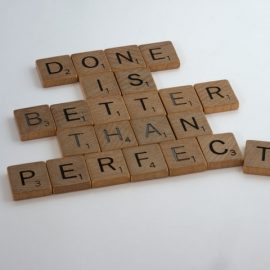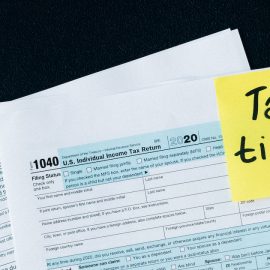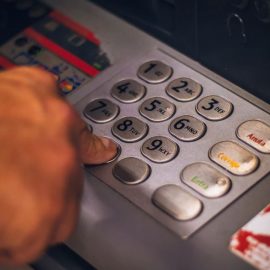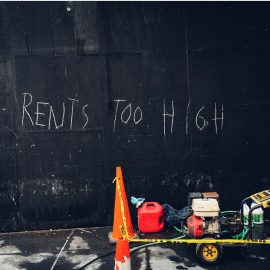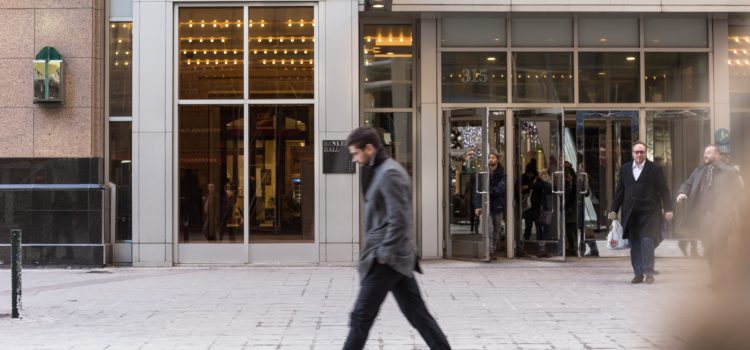
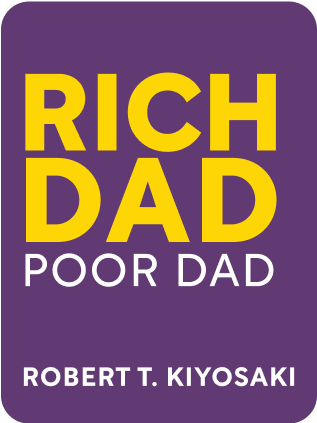
This article is an excerpt from the Shortform summary of "Rich Dad Poor Dad" by Robert T. Kiyosaki. Shortform has the world's best summaries of books you should be reading.
Like this article? Sign up for a free trial here .
What is the Rich Dad, Poor Dad rat race? Does the book tell you how to escape in?
In Rich Dad, Poor Dad, the rat race is the never ending cycle of earning money and owing money, so you get caught in a loop and never truly do what you want to do in life. The Rich Dad, Poor Dad rat race is the thing that drove the author to the Rich Dad’s financial philosophy; to generate enough wealth to achieve financial independence.
Lessons of The Rich Dad, Poor Dad Rat Race
The rat race is a key element of the book. Part of being financially independent is learning how to avoid the rat race. Here’s some of Rich Dad’s tips.
Working for No Pay
Rich Dad’s next order is for the author and Mike to go back working, but now with zero pay. When Kiyosaki complains, Rich Dad challenges him: we can go back to our original deal of 10 cents, or you can do what most people do – complain there isn’t enough pay, and go looking for another job. When Kiyosaki is confused, Rich Dad advises him to use his head.
After working for 3 more weeks, both kids are confused by what they’re supposed to be learning. Rich Dad comes by and tells them there’s a lesson to be learned here.
“If you don’t learn this lesson, you’ll end up like other people who work hard, clinging to their pay and constantly looking forward for their vacation days and little raises. Here – I’ll raise your pay to 25 cents an hour. Does that excite you? Do you want to take it?”
Rich Dad keeps raising the stakes – a dollar an hour. $2 an hour. The author’s imagination runs wild at having that much money, but he knows he’s being tested. Each person has a weak and needy part of their soul that can be bought. Each person also has a part of their soul that is strong and can never be bought. This is his first lesson in Rich Dad, Poor Dad on the rat race.
The point of the lesson: most people run endlessly in a loop between fear and greed.
- Fear of not having money makes people work hard.
- Then once they get a paycheck, greed gets them salivating over all the things money can buy. They spend the money thinking it can buy joy, but the joy is short-lived. Soon they have money problems, and fear drives back in.
- This cycles endlessly, even as their paycheck increases – this is the Rat Race. Money ends up running their lives.
- Even rich people are subject to this fear – the more money they get, the more terrified they are of losing it. They fear losing social standing, and the weak part of their soul gets even more desperate.
Rich Dad was trying to teach the kids not to give into emotions around money, but rather to delay reactions and think.
- Taking on the job for free was the first resistance to emotions.
- Next, raising the hourly wage for the kids was a metaphor for adult salaries. Incremental raises trigger hopes for incremental advancements to life, causing people to live in a perpetual loop and never truly exploring their dreams.
Avoiding Liability in the Rich Dad, Poor Dad Rat Race
In Robert Kiyosaki’s view, the most common mistake is buying a house as a primary residence, and considering it an asset and their primary investment. This is a prime Rich Dad, Poor Dad rat race example.
His reasoning:
- You don’t get rental income on your house. Meanwhile, you’re paying large expenses – mortgage, property taxes, upkeep. In steady state, this represents monthly negative cashflow that requires income to compensate. (Shortform note: Kiyosaki basically considers things assets only if they generate cash.)
- This is why many are stuck in the rat race – someone buys an expensive house. Now she has high monthly expenses, so she has to keep working to sustain it. Yes, the house may be appreciating, but that doesn’t help her high month to month expenses.
- The money tied up as a down payment, building up home equity, and paying expenses has a large opportunity cost. That money could be better spent on higher returning assets.
- While real estate can appreciate over the long term, there’s no guarantee of this.
- Even if real estate appreciates, you get the gain only on liquidation. (Kiyosaki seems to prefer investments with clearer short-term outcomes.)
- Considering your house as your primary investment causes a few subtle problems:
- People tend to overspend on housing, depleting money that could be spent on other investments.
- Because your cash is spent on the house, you never have enough money to think about what to do with it. This prevents building up the financial education to become a sophisticated investor.
- (Shortform note: also, loading too heavily on your house concentrates risk on your local real estate market. And if you’re subject to groupthink, you’re more likely to think buying a house is a great deal precisely when it’s actually not.)
- Many people buy a new house every number of years, each time incurring a new 30-year loan without really truly owning the house.
If you get a pay raise, don’t upgrade your house if you don’t need to. This is the cause of the vicious cycle putting you in Rich Dad, Poor Dad‘s rat race.
Learn Broadly
Many people with great talent in their trade aren’t rich. They’re specialists and proud of it.
Often, they just need to learn and master one more skill to dramatically boost their income.
- Analogy: How many people can make a better hamburger than McDonald’s? Most people would think so. Then why does McDonald’s make more money than they do? Because McDonald’s has mastered a business system, while most people focus on building a better hamburger.
Notable examples of underappreciated skills include sales, marketing, communication, negotiating, investing, people management, and financial intelligence.
- Consider taking a pay cut to work at a firm where you’ll gain a critical orthogonal skill – like marketing at an ad agency, or people leadership in the military.
- Rich Dad invited his son and the author to work in a broad set of roles at his companies (bus boy, construction worker, accounting) and participate in meetings with bankers, lawyers, and accountants.
Look ahead at what skills you want to acquire before choosing a profession and specializing in the rat race.
The Rich Dad, Poor Dad rat race is clearly difficult to escape. Especially once you’re caught in in, the Rich Dad, Poor Dad rat race can feel suffocating and impossible. Using Rich Dad’s advice, author Robert Kiyosaki offers ways to live differently.

———End of Preview———
Like what you just read? Read the rest of the world's best summary of Robert T. Kiyosaki's "Rich Dad Poor Dad" at Shortform .
Here's what you'll find in our full Rich Dad Poor Dad summary :
- The key differences in how rich dad and poor dad approached life
- Why it's a terrible idea to buy an expensive house
- How to overcome your own mental blocks to become wealthy for life

